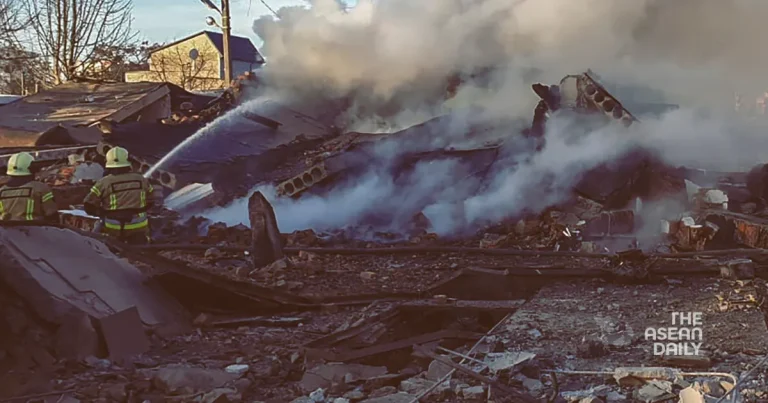17-11-2024 (MOSCOW) Russia unleashed one of its most devastating aerial assaults of the nearly three-year conflict against Ukraine on Sunday, launching a combined barrage of missiles and drones that left multiple casualties and dealt severe blows to the nation’s struggling power infrastructure.
Ukrainian President Volodymyr Zelenskyy reported that Russian forces fired 120 missiles and 90 drones, with Ukrainian air defences successfully intercepting 140 of these projectiles. The widespread attack resulted in at least eight fatalities and wounded more than 20 people across multiple regions.
Energy Minister German Galushchenko confirmed a “massive attack” targeting electricity generation and transmission facilities nationwide, forcing emergency power cuts in Kyiv, Donetsk, and Dnipropetrovsk regions. The state energy operator DTEK reported this as the eighth major assault on power stations this year.
The strikes reached unprecedented geographical scope, hitting targets from Transcarpathia in the far west – prompting Poland to scramble fighter jets – to Odesa in the south, where two fatalities were confirmed. In Nikopol, two railway workers perished when a depot was struck, while attacks in the Mykolaiv region claimed two lives and injured six, including two children.
The timing of this assault appears particularly critical as Ukraine faces mounting difficulties. The approach of winter threatens already vulnerable energy infrastructure, while Ukrainian forces continue to report territorial losses in recent weeks. Adding to these challenges, uncertainty now looms over continued Western support following Donald Trump’s re-election.
Foreign Minister Andriy Sybiga characterised the bombardment as Russia’s “real response” to recent Western diplomatic overtures, including German Chancellor Olaf Scholz’s controversial phone call with Russian President Vladimir Putin.
The assault has highlighted Ukraine’s urgent need for enhanced air defence systems and infrastructure support from Western allies. However, Trump’s imminent return to the White House has raised concerns about the future of American assistance, given his previous statements questioning U.S. support for Ukraine.
President Zelenskyy, while maintaining his rejection of Putin’s demands for territorial concessions, has recently indicated openness to diplomatic solutions in 2024, marking a subtle shift in rhetoric as the conflict approaches its third year.
Dr. Ivan Petrov, a defence analyst in Kyiv, noted: “This attack demonstrates Russia’s continued strategy of targeting civilian infrastructure to weaken Ukrainian resolve, particularly as winter approaches and Western support appears less certain.”




